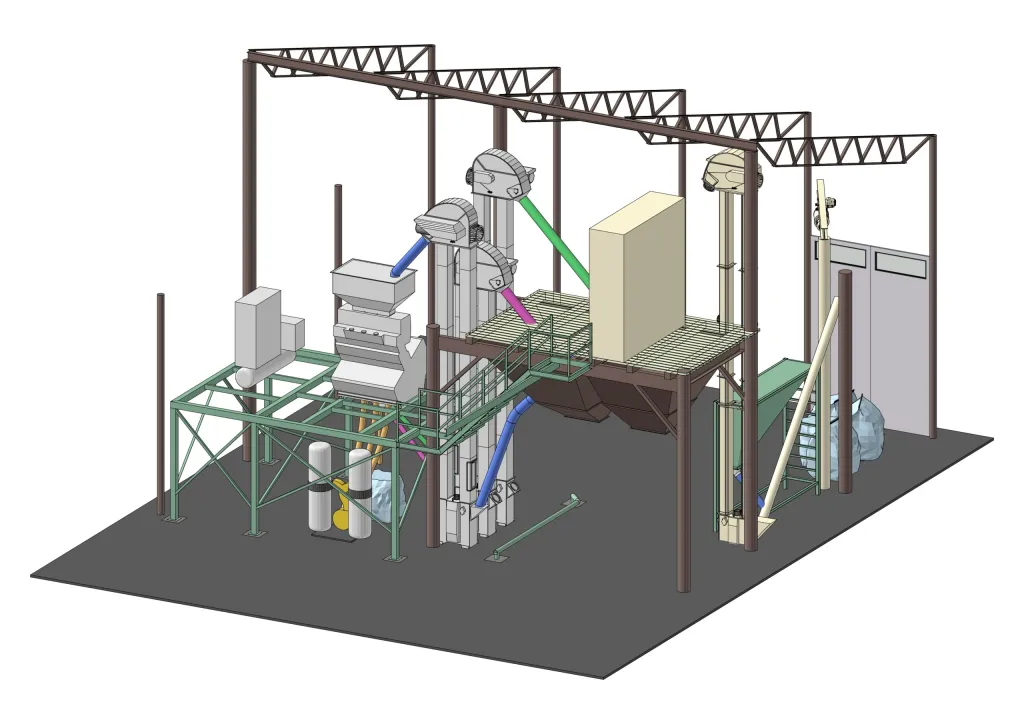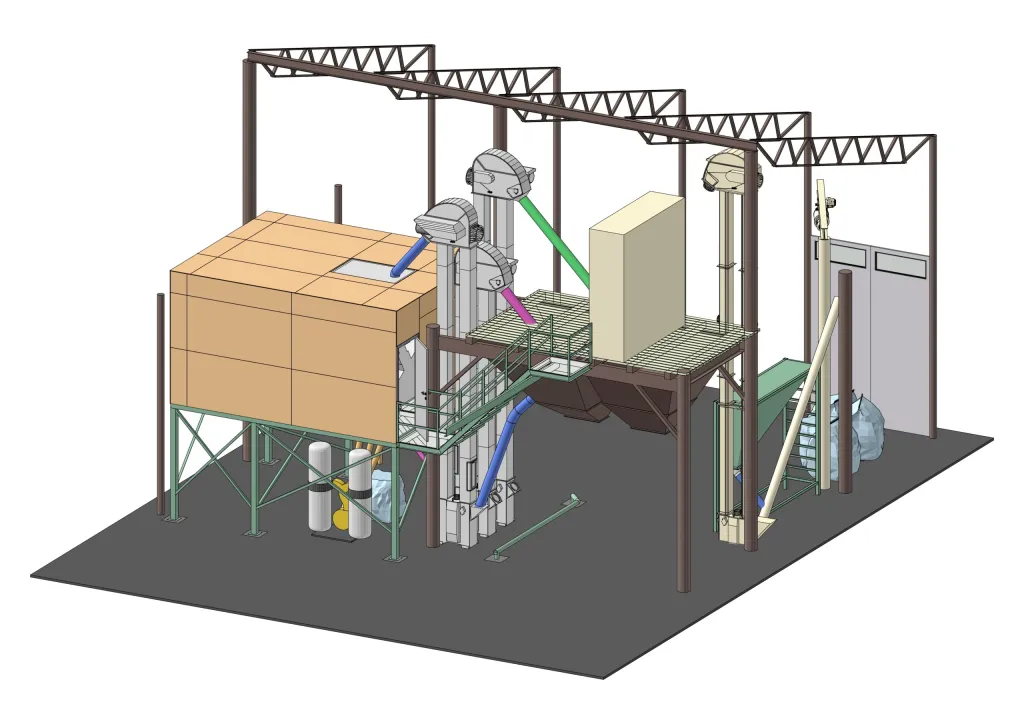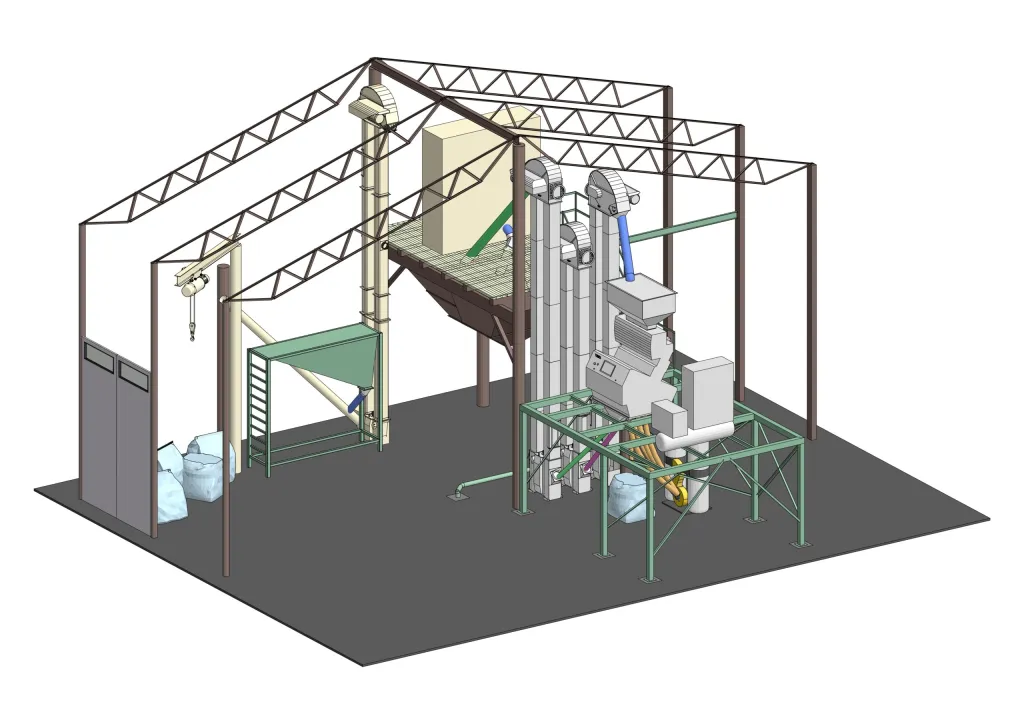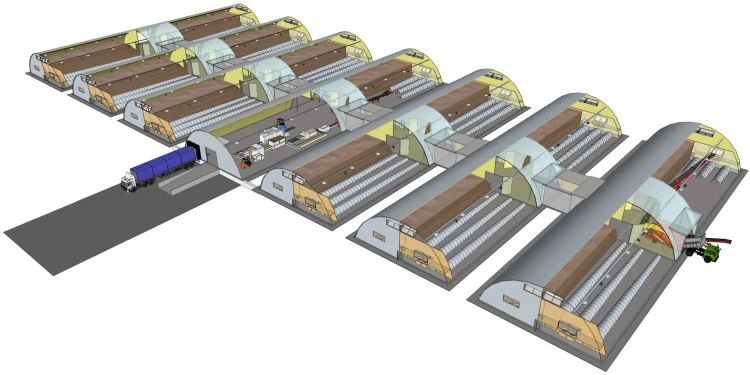Essential Preliminary Steps for Constructing Storage Facilities and Agricultural Complexes
In the dynamic realm of agricultural infrastructure development, the initial stages often determine the success of the entire project. Many agricultural producers and entrepreneurs embark on building storage facilities, grain drying complexes, or feed processing units with the misconception that the project can evolve as construction progresses, thereby saving time and costs. However, experts emphasize that commencing with pre-project activities is crucial to achieving the desired infrastructure efficiently, economically, and with minimal stress.



Pre-project activities encompass four critical phases.
1. Urban Planning Analysis During this phase, specialists gather crucial data about the construction site, identifying potential technical and legal constraints. They evaluate the feasibility of establishing the enterprise on the chosen site in compliance with regulatory requirements, including building codes, fire safety standards, and sanitation norms. Expertise in regulatory and normative documentation such as Resolution No. 87 “On the Composition of Sections of Project Documentation and Requirements for Their Content,” SanPiN 2.2.1/2.1.1.1031-01, and the Urban Planning Code of the Russian Federation is essential.
Additionally, experts provide preliminary assessments regarding the necessary infrastructure connections and analyze the local transportation network.
2. Development of Preliminary Design Specialists proceed with determining the technological layout and equipment composition, which guide the optimal dimensions and structural components of the facility. The preliminary layout considers the geometry and terrain of the site. Clients receive a preliminary project outline detailing dimensions, shapes, volumes, materials, and other specifics.
Based on these preliminary decisions, a primary list of construction and installation works is compiled, allowing for a rough estimate of project costs.
3. Roadmap Development This phase involves crafting a roadmap outlining the sequence of actions for project approval and implementation. Key milestones, construction deadlines, and responsible parties are delineated in this document.
4. Assignment Definition for Project Documentation and Surveys The assignment for engineering surveys (geological, geodetic, hydrometeorological, ecological, etc.) is a crucial document specifying field and laboratory work. It optimizes time and material costs for surveys.
Overall, the pre-project stage entails synthesizing and documenting all previously gathered information. This systematic approach provides clients with insights into the feasibility, potential risks, and approximate costs associated with their infrastructure project. Armed with this data, clients can initiate investor searches, partnership ventures, or loan applications from financial institutions. They can also begin liaising with companies offering engineering network connections, marking the first steps towards realizing their construction project.




